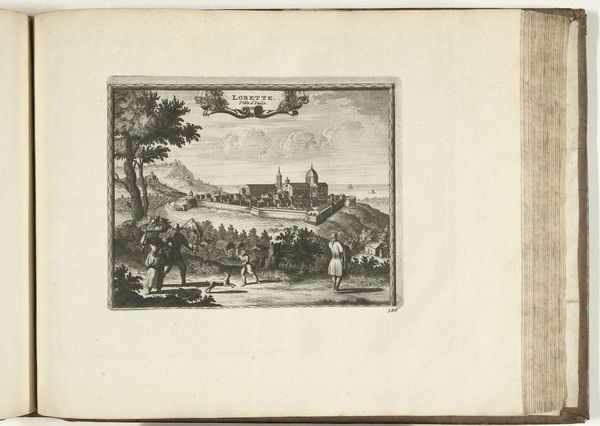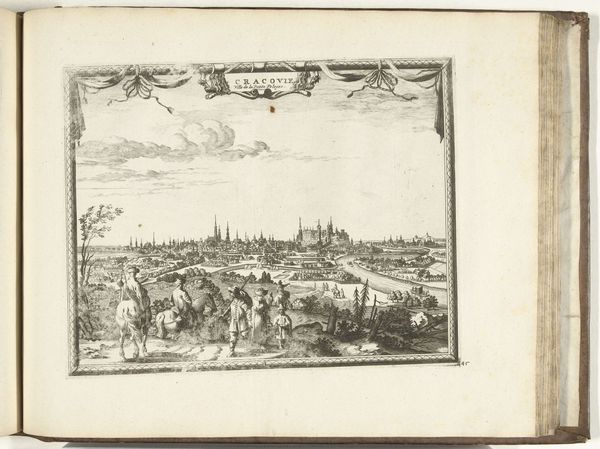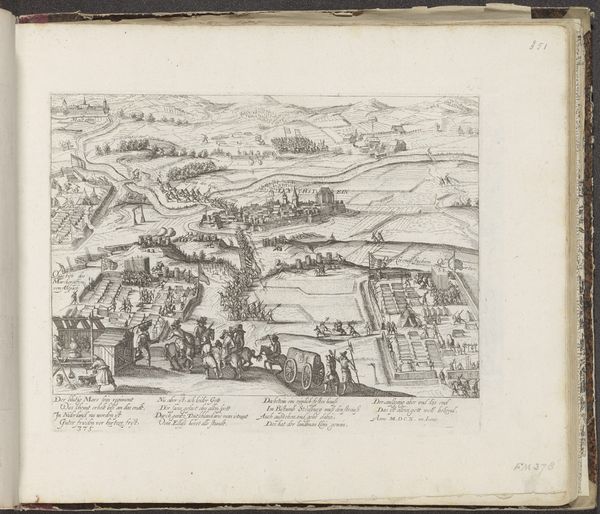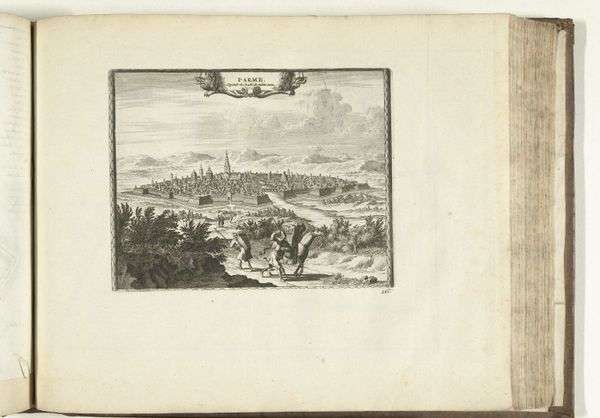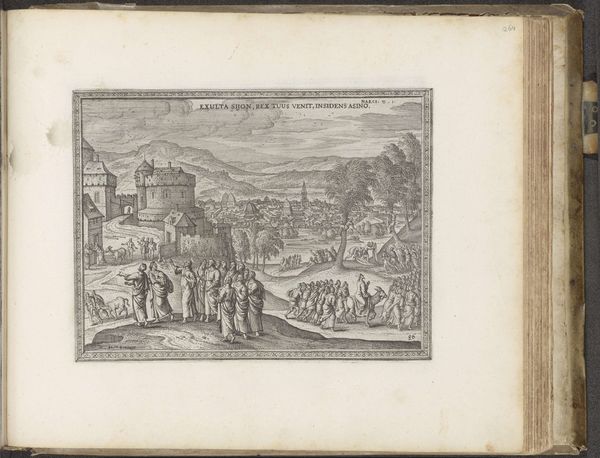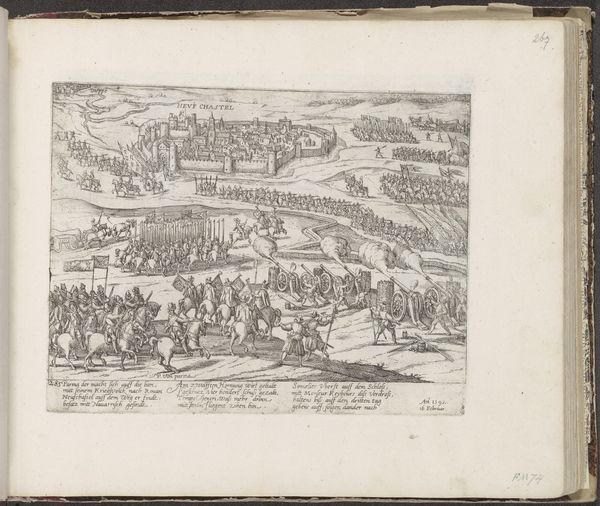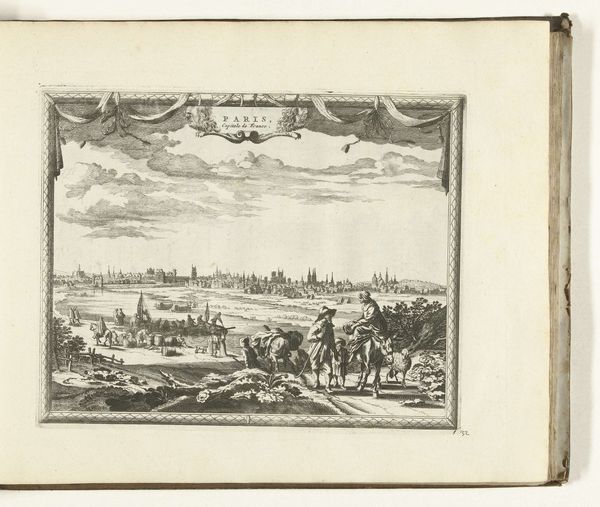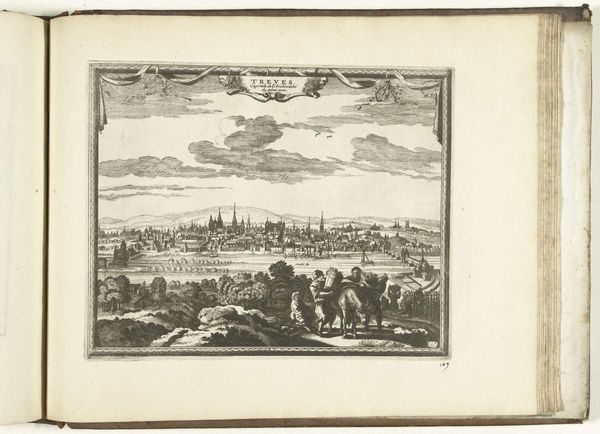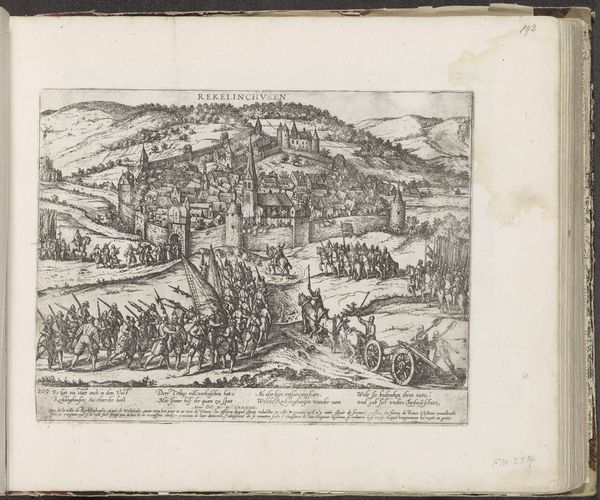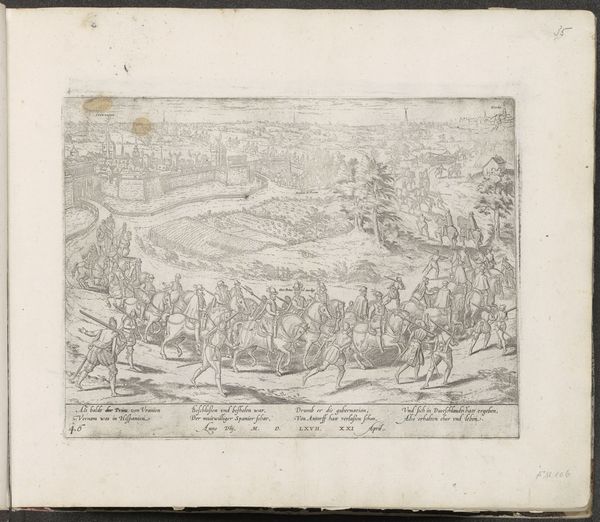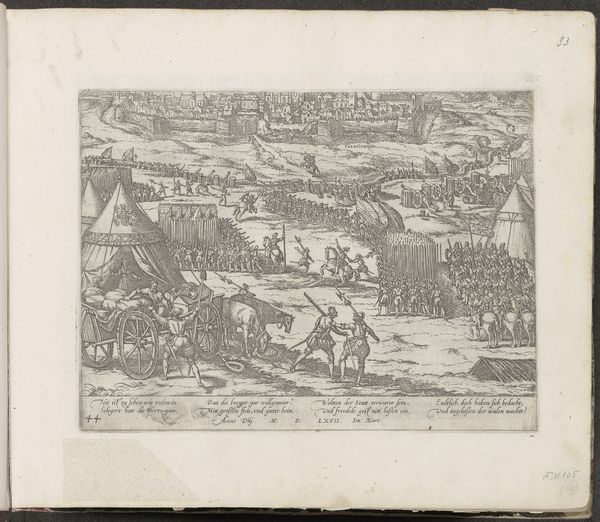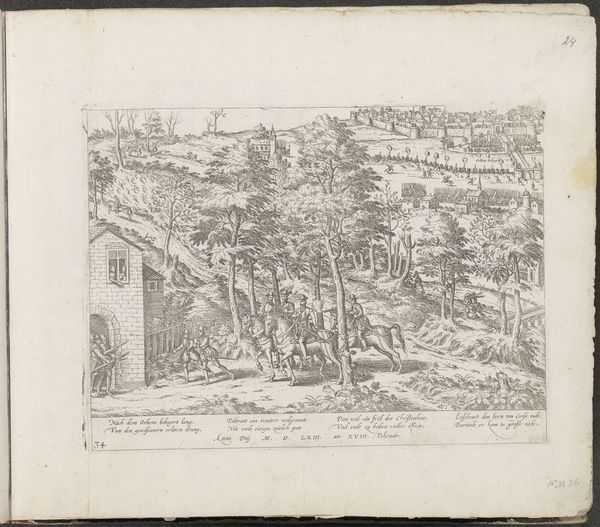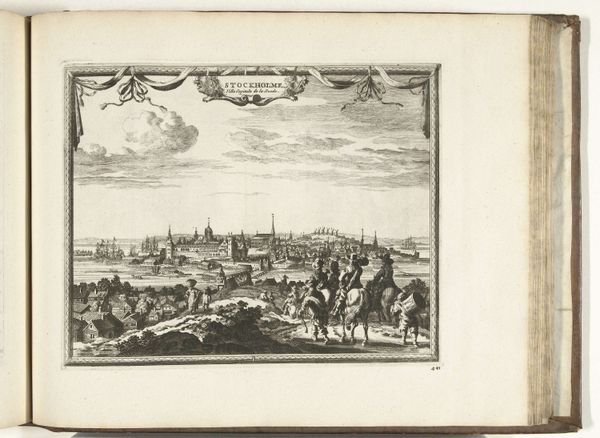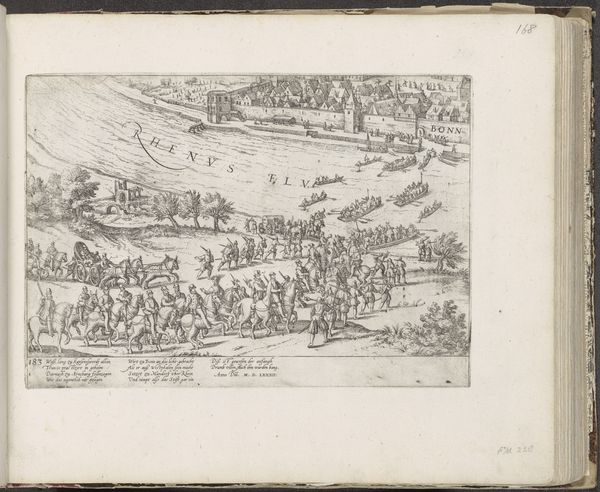
#
aged paper
#
toned paper
#
light pencil work
#
pencil sketch
#
personal sketchbook
#
pen-ink sketch
#
sketchbook drawing
#
watercolour illustration
#
sketchbook art
#
watercolor
Dimensions: height 268 mm, width 214 mm
Copyright: Rijks Museum: Open Domain
This anonymous engraving offers us a glimpse into Florence in 1726. Dominating the scene is the cityscape itself, a dense cluster of buildings crowned by a fortress on the distant hills. This representation is not merely topographical; it's laden with symbolic weight, reflecting Florence's historical identity as a bastion of power and culture. Consider the equestrian figure in the foreground, a motif echoing back to ancient Roman triumphs. Equestrian statues often symbolized leadership and control. But here, its presence also connects to Florence's own self-image as a 'new Rome' during the Renaissance. It’s a visual echo, resonating through time. Notice the allegorical figures on the scroll at the top of the image. Their presence reflects the city's aspirations and values. Such symbols have been passed down through history, each culture adapting and reinterpreting them to reflect their own beliefs and ideals. This constant adaptation mirrors the complex interplay between collective memory and subconscious desires. The image of Florence triggers a powerful force, engaging viewers on a deep, subconscious level with its unique composition. This emblem, with its non-linear and cyclical progression, resurfaces, evolves, and takes on new meanings in different historical contexts.
Comments
No comments
Be the first to comment and join the conversation on the ultimate creative platform.
